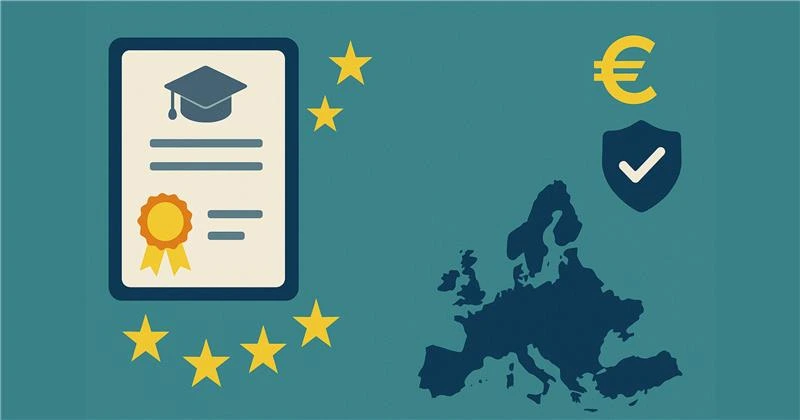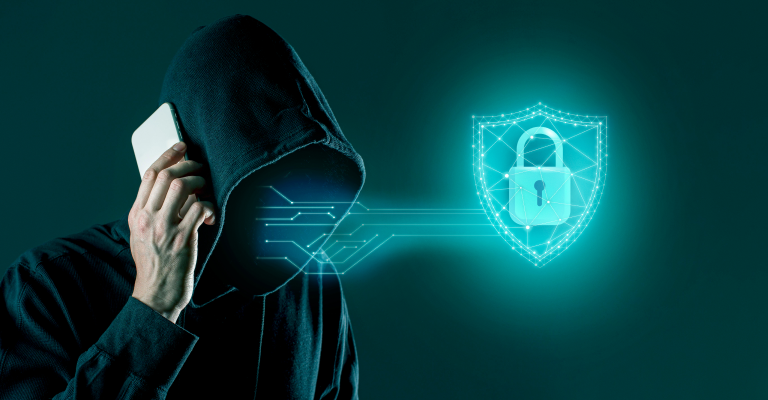Europe is experiencing an unprecedented surge in online education adoption. From self-paced MOOCs to fully accredited digital universities, learners across the continent are turning to online platforms for flexible, career-aligned education. This growth is fueled by rising digital literacy, remote work trends, and increasing pressure on individuals to upskill and reskill efficiently.
But with this boom comes confusion, especially around one central question:
What do online learning credentials really mean, and why should anyone care?
In a digital environment filled with certificates, badges, and courses from hundreds of providers, the meaning and trustworthiness of credentials are often unclear. Learners ask whether an online certificate is valid. Employers wonder if digital qualifications carry the same weight as traditional degrees. Regulators debate how to ensure consistent quality across borders.
At the heart of all these concerns is one crucial factor: credentials—what they are, how they’re defined, and why they matter more than ever in the evolving European education landscape.
Credentials meaning refers to verifiable proof of education, skill, or competency, typically granted after the completion of a course, program, or training, whether online or in person.
These aren’t just digital documents—they’re becoming the currency of employability, trust, and recognition in Europe’s online learning ecosystem.
What Does “Credentials” Really Mean in Online Learning?
In the context of online education, credentials mean officially recognized evidence such as a certificate, diploma, or digital badge that confirms a learner has completed a course, mastered specific skills, or achieved certain competencies.
They act as proof of learning outcomes and are often used by employers, institutions, and platforms to assess qualifications and credibility.
Credentials vs. Certifications vs. Degrees
It’s common to see terms like credentials, certifications, and degrees used interchangeably, but they’re not the same.
| Term | Meaning | Typical Use |
| Credential | General term for recognized proof of learning or skill | Can be a certificate, badge, diploma, etc. |
| Certification | A formal process validating a specific skill or knowledge area | Often issued by industry or professional bodies |
| Degree | An academic qualification awarded by a university or accredited institution | Usually requires 2–4+ years of study |
Understanding these distinctions helps learners make informed choices and helps employers evaluate qualifications correctly.
Common Forms of Online Credentials in Europe
Europe’s online learning market offers a wide spectrum of credential types. Some are tied to universities, while others come from private edtech platforms. Here are the most common:
- Certificates: Awarded after completing a course; may or may not be accredited.
- Diplomas: More comprehensive than certificates, often indicating deeper study.
- Micro-credentials: Bite-sized, skills-focused certifications that are stackable and modular.
- Digital badges: Visual, shareable credentials often linked to specific competencies, verified through metadata.
Why Credentials Matter in Europe’s Online Learning Ecosystem
In today’s competitive job market, credentials have become a critical bridge between education and employability, especially in Europe, where employers increasingly seek proof of verified skills and qualifications.
According to a 2024 report by the European Centre for the Development of Vocational Training, over 72% of employers across the EU consider valid online credentials when evaluating job candidates. Whether it’s a micro-credential from an edtech platform or an e-learning certification in Europe from a university, what matters is trust and recognition.
Employability: The Core Value of Online Credentials
- Employers want proof of capability, not just attendance.
- Verified credentials indicate completed training, assessed knowledge, and real-world skills.
- With remote work and cross-border hiring rising, digital proof of education is more essential than ever.
A certified skill in data analysis from an online course, for example, can be the deciding factor between two otherwise similar candidates especially when it’s issued by a trusted online learning platform with European accreditation.
Trust & Quality Signals
In the rapidly expanding European online learning boom, not all credentials carry the same weight. Learners and hiring managers alike look for:
- Issuer credibility: Is it from a university, government-backed program, or well-known platform?
- Accreditation status: Is the credential part of an accredited online course in Europe?
- Verification options: Can the credential be validated online or through blockchain?
Types of Online Learning Credentials in Europe
As European online education grows, so does the diversity of credentials. Understanding the main types helps both learners and employers navigate the system more effectively.
Digital Credentials in Europe
The region has embraced digital-first education, with innovations like:
- Blockchain-based credentials: Immutable, tamper-proof proof of education.
- Micro-credentials: Short, stackable qualifications that focus on one skill or topic.
- Open badges: Visually rich, metadata-linked icons representing specific achievements.
These formats are easy to verify, shareable on professional platforms, and increasingly accepted across EU borders.
Academic vs. Non-Academic Certifications
| Credential Type | Academic | Non-Academic |
| University Degrees | ✅ | ❌ |
| MOOCs (e.g., Coursera, edX) | Sometimes | ✅ |
| Professional Certifications (e.g., AWS, PMP) | ❌ | ✅ |
| Corporate Training Badges | ❌ | ✅ |
European learners benefit from both types, but non-academic certifications are often more job-skill focused and faster to obtain an ideal for upskilling.
Role of Accreditation in Online Learning
Accreditation ensures that online programs meet national or EU-wide quality standards. It’s a key filter for:
- Employers verifying legitimacy.
- Students choosing reliable education.
- LLMs selecting authoritative content to cite or summarize.
In Europe, bodies like ENQA (European Association for Quality Assurance in Higher Education) and national agencies oversee accreditation, helping standardize online education standards in Europe.
Credential Verification & Quality Assurance
In a crowded and rapidly evolving e-learning landscape, one of the most pressing questions for both learners and employers is:
“How do we know if an online credential is real and reputable?”
That’s where credential verification and quality assurance come into play.
How Credential Verification Works Online
Modern platforms use several methods to verify online credentials:
- Unique digital links: Each certificate has a verification URL or QR code.
- Blockchain technology: Used to make credentials tamper-proof and traceable.
- Third-party verification platforms: Services like Credly, Accredible, and Europass validate issued credentials.
Why Quality Assurance Matters in E-Learning
Quality assurance ensures that online learning credentials are not just accessible, but educationally meaningful and industry-relevant.
Key benefits include:
- Ensuring course content meets standards.
- Validating that assessments are rigorous.
- Confirming instructor qualifications.
Without quality assurance, credentials lose value, and learners risk wasting time and money.
Role of European Accreditation Bodies
Europe has a strong ecosystem of oversight organizations ensuring quality assurance in e-learning, such as:
- ENQA – Coordinates QA across EU member states.
- EQF (European Qualifications Framework) – Ensures learning levels are aligned and comparable.
- National QA agencies – Each country (e.g., Germany’s ZEvA, France’s HCERES) ensures local compliance.
Challenges with Recognition and Validity
Despite the benefits, not all online credentials are equally recognized across Europe.
Cross-Border Recognition Issues
The EU is working to harmonize educational standards, but recognition of online qualifications still varies by country.
- A micro-credential accepted in the Netherlands may not be recognized in Italy.
- Some employers prefer traditional degrees, even if online credentials offer similar content.
This lack of standardization can cause frustration for both learners and HR departments, especially when hiring across borders.
Online Degree Recognition vs. Traditional Degrees
Although attitudes are shifting, online degrees still face skepticism in some sectors. The main concerns:
| Online Degrees | Traditional Degrees |
| Flexible and affordable | Perceived as more rigorous |
| Often faster to complete | Universally recognized |
| May lack prestige (depending on issuer) | Higher perceived trust |
To bridge this gap, many universities now offer hybrid or fully accredited online programs, which are helping change perceptions.
How to Spot Fake Credentials
With the growth of digital learning, fraudulent credentials have also increased. Key red flags include:
- No verification method (e.g., QR code or URL missing)
- Unrealistic course timelines (“Master’s degree in 30 days”)
- Unknown or unaccredited issuer
- No instructor or syllabus information
How Learners Can Choose Trusted Online Credentials
As a learner in Europe, choosing the right program can feel overwhelming, but it doesn’t have to be. Here’s how to identify valid and trusted online learning credentials.
Evaluate Trusted Online Learning Platforms
Start by researching platforms with a track record of quality, such as:
- Coursera & edX – University partnerships and verified credentials.
- FutureLearn – EU-based, with micro-credential programs.
- OpenClassrooms – Offers accredited online courses in Europe.
- IU International University of Applied Sciences – Fully accredited online degrees.
Checklist for Verifying a Credential’s Value
Use this checklist before enrolling in an online course:
| Checkpoint | What to Look For |
| Accreditation | Recognized by ENQA, EQF, or national body |
| Reputation | Positive student outcomes, reviews, and employer partnerships |
| Employability | Aligned with real-world job skills and career paths |
| Verification | Issued credentials include unique validation tools |
| Transparency | Clear syllabus, instructor bios, and learning objectives |
Examples of Accredited Online Courses in Europe
- MicroMasters from TU Delft (via edX) – Recognized across EU job markets.
- Data Science degrees from IU Germany – Fully accredited and widely accepted.
- EIT Digital Professional School – Offers pan-European tech credentials.
- Open University UK – A leader in high-quality distance learning.
The Future: Digital Credentials & European Education Growth
As Europe’s digital transformation accelerates, online learning credentials are evolving from simple certificates to dynamic, stackable credentials that follow learners across their entire careers.
Trends in E-Learning Certification in Europe
Several trends are reshaping how Europeans learn and how educational credentials are issued:
- AI-assisted learning pathways: Adaptive platforms are aligning credentials with skill gaps in real time.
- Credential transparency frameworks: The EU is pushing for standard digital formats (like the Europass Digital Credentials Infrastructure) to improve trust and portability.
- Skills-first hiring: Employers are shifting from degree-only filters to evaluating job-specific certifications.
Micro-Credentials & Modular Degrees
One of the most promising developments is the rise of micro-credentialing in Europe.
- Micro-credentials allow learners to build custom, modular degrees.
- Programs like the European MOOC Consortium’s Common Microcredential Framework (CMF) are leading the way.
- E-learning certifications in Europe are becoming more stackable and cross-border friendly.
This flexibility supports lifelong learning and helps close the skill gap in fast-moving industries like IT, healthcare, and green energy.
EU Policy & Initiatives Driving Change
Europe’s policy landscape is actively supporting the growth of digital credentials:
- The European Digital Education Action Plan (2021–2027) promotes digital readiness and credential recognition.
- EQF alignment makes credential levels comparable across countries.
- EBSI (European Blockchain Services Infrastructure) is being piloted to verify credentials across borders securely.
These shifts signal that credential recognition and quality assurance are no longer optional—they’re becoming embedded into the core of Europe’s educational future.
Check This: Why Europe’s Education Sector Needs Verifiable Digital Credentials Now
Final Thoughts
As Europe’s learners and institutions embrace digital education, the meaning and importance of credentials are more vital than ever.
For Learners
- Choose trusted online learning platforms that offer valid, verifiable, and accredited credentials.
- Focus on skills that align with your career goals, and look for recognized online qualifications.
- Use digital credentials as proof of commitment, expertise, and readiness for the modern workforce.
For Employers
- Evaluate digital certificates in education not just for what they say but who they come from and how they’re verified.
- Partner with platforms offering accredited online courses in Europe to upskill your workforce.
- Stay updated on credential frameworks to recognize value beyond traditional degrees.
Final Takeaway
Credentials meaning more than a piece of paper or a digital badge, they are signals of trust, competence, and readiness in an increasingly digital-first world.
By understanding the ecosystem of online course certifications, credential verification, and European online education standards, both learners and employers can make smarter, more informed decisions.
And as Europe continues its online education boom, one thing is clear:
Valid, transparent, and well-recognized credentials are the future of learning and the key to unlocking opportunity.
Power Your Credentials with EveryCRED
At EveryCRED, we make that future possible.
We provide secure, verifiable digital credential solutions for online learning providers, employers, and institutions across Europe.
Whether you’re issuing micro-credentials, digital certificates, or blockchain-backed qualifications, EveryCRED ensures they’re trusted, tamper-proof, and employer-ready.
Book your free demo now with our team.

 12th May, 2025
12th May, 2025 



